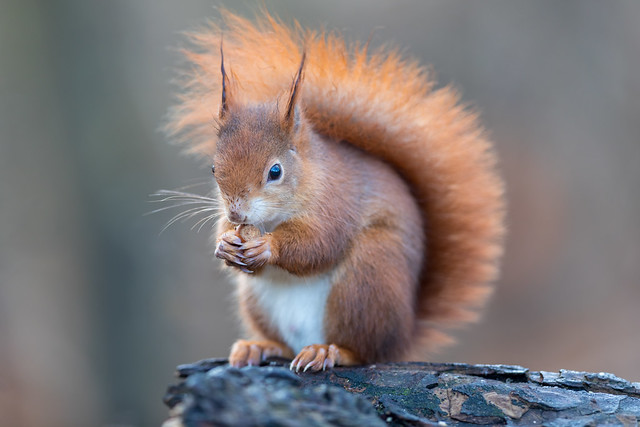Today we’re looking at the words for memory, to remember and related things in Celtic languages.
Words marked with an * are reconstructions.
| Proto-Celtic | *kom-men- = memory |
|---|---|
| Old Irish (Goídelc) | cuimne = memory cuimnigidir = to remember, recall cuman = remembered, memorable |
| Middle Irish (Gaoidhealg) | cuimne, cumhna, coimne = memory, remembrance, memorial cuimmech, cuimhneach, cuimneach = mindful, remembering, aware, remembered, memorable, famous cuman, cumhuin = remembered, memorable |
| Irish (Gaeilge) | cuimhne [ˈkiːnʲə / ˈkɨ̃vʲnʲə] = memory cuimhneach = recollective, reflective, thoughtful cuimhneachán = commemoration, memento, souvenir cuimhneamh [ˈkiːnʲəvˠ] = remembrance, recollection, thought, conception, plan cuimhnigh [ˈkivʲnʲə / ˈkiːnʲɪɟ] = to remember, consider, think, remind, conceive cuimhnitheach = memorial díchuimhne = forgetfulness díchuimhneach = forgetful |
| Scottish Gaelic (Gàidhlig) | cuimhin [ku.in̪ʲ] = memory cuimhine [kɯ̃ĩn̪ʲə] = memory, recollection, remembrance cuimhneach [kɯ̃ĩn̪ʲəx] = mindful cuimhneachadh [kɯ̃ĩn̪ʲəxəɣ] = (act of) remembering, minding, remembrance, commemorating cuimhneachan [kɯ̃ĩn̪ʲəxan] = memorial, keepsake, memento, souvenir, commemoration, reminder cuimhneachd [kɯ̃ĩn̪ʲəxg] = mindfulness cuimhnich [kɯ̃ĩn̪ʲɪç] = (to) remember, mind, commemorate dìochuimhnich [dʲĩə̃xənɪç] = (to) forget |
| Manx (Gaelg) | cooinaght = memory, mind, memorial, remembrance, reminiscence, commemoration cooinaghtyn = to remember, commemorate cooinaghan = memorandum cooinaghtane = keepsake, memento, reminder, souvenir |
| Middle Welsh (Kymraec) | cob, cov, cow, cof = memory, mind, sense, remembrance, record, recollection, memorial, regards, mindful cofiad remembrance, memory, record, memorial, mind, thought |
| Welsh (Cymraeg) | cof [koːv] = memory, mind, sense, remembrance, record, recollection, memorial, regards, mindful cofair = record, memorial, motto, mnemonic cofeb = memorial, petition, memorandum, souvenir, memoir cofgar = mindful, having a retentive memory cofiad remembrance, memory, record, memorial, mind, thought cofio = to remember, remind, mention anghofio = to forget |
| Middle Cornish (Cernewec) | cof, côf = remembrance, recollection, memory |
| Cornish (Kernewek) | kov [koːv] = memory, recollection kova = to remember kovadh = chronicle, record kovadha = to record kovnotya = to minute (a meeting) kovro = keepsake, memento, souvenir kovskrif = archive kovskrifa = to register |
| Old Breton (Brethonoc) | com, cam = memory |
| Middle Breton (Brezonec) | coff, couff, coun, coûn = memory, remembrance, recollection, mind couffhat, confat, coufat = to remember, recall, recollect |
| Breton (Brezhoneg) | koun [ˈkɛm.bɛr] = memory kounaat = to remember, recall, recollect kounadur = mention, reference, commemoration kounaer = memoirist kounerezh = = memory, the ability to remember |
Etymology: from Proto-Celtic *kom- (with) and *men- (to think), from Proto-Indo-European *kom- (with) and *men- (to think, mind) [source]. Words from the same roots include monitor, money, mint, minion, monster and admonish in English, moneda (coin, currency) in Spanish, and μνήμη (mními – memory) in Greek [source].
| Old Irish (Goídelc) | mebair = memory |
|---|---|
| Middle Irish (Gaoidhealg) | mebair, mebar, memur, memor, mebur = recollection, memory, remembered mebrach, meabhrach = remembering, mindful, intelligent, quick-witted mebraigid, memraigh, meabhraigh = to commit to memory, to learn, rehearse, recite, record devise ainmebair = forgetfulness coimmebair = commemoration |
| Irish (Gaeilge) | meabhair [mʲauɾʲ / mʲoːɾʲ] = mind, memory, consciousness, awareness, reason, sensation, feeling, sense, meaning meabhrach = mindful, reflective, thoughtful, intelligent, conscious, aware meabhrachán = memorial, record meabhraigh = to commit to memory, remember, meditate, reflect, perceive, sense meabhraíocht = consciousness, awareness, thought, intelligence meabhrán = memorandum meabhránaí = day-dreamer, registrar meabhrú = memorization, meditation, reflection, perception, feeling |
| Scottish Gaelic (Gàidhlig) | meomhair [mjo.ɪrʲ] = memory, memorandum, (act of) thinking meòmhraich [mjɔːrɪç] = (to) ponder, think of something, consider, contemplate, deliberate meòmhrachadh [mjɔːrəxəɣ] = pondering, thinking, considering, contemplating, deliberating meòmhrachan [mjɔ̃ːrəxan] = memo(randum), note meòmhrachail [mjɔ̃ːrəxal] = comtemplative |
Etymology: from Latin memoria (memory, remembrance), from memor (mindful, remembering), either from Proto-Indo-European *(s)mer- (to think, remember), or from Proto-Italic *memnos, from Proto-Indo-European *me-mn-os-, from *men- (to think, mind, spiritual activity) [source].
Sources: Wiktionary, Etymological Dictionary Of Proto Celtic, In Dúil Bélrai English – Old Irish glossary, eDIL – Electronic Dictionary of the Irish Language, Teanglann.ie, Am Faclair Beag, An etymological dictionary of the Gaelic language, Fockleyreen: Manx – English Dictionary, Online Manx Dictionary, Gaelg Corpus, Geiriadur Prifysgol Cymru, Lexicon cornu-britannicum : a dictionary of the ancient Celtic language of Cornwall, Gerlyver Kernewek, Devri : Le dictionaire diachronique du breton, Geriafurch, TermOfis











